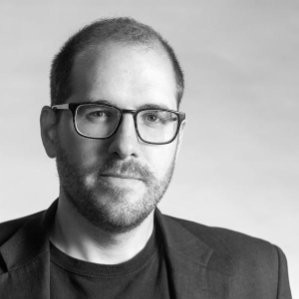The Mayor’s Office of Broadband and Digital Equity (BDE) has undergone a major change: Director Jason Hardebeck is gone, and the office has been folded into Baltimore City Office of Information and Technology (BCIT).
BDE was supposed to shepherd in the closing of the digital divide by 2030, per the Digital Equity Framework released by the city, with the appointment of Hardebeck in March 2021 as one giant step in the right direction. Fifteen months later, the office is no more, and the burden is on the shoulders of BCIT. Now, along with managing the local government’s digital infrastructure, the department is tasked with building out the City’s broadband infrastructure.
The reasons for Hardebeck’s departure are unknown. Could it be because after a year in office, digital equity stakeholders felt little progress had been made by BDE? Could it be internal disagreement on the best paths forward? For now, neither Mayor Brandon Scott’s office or Hardebeck have commented. Kenya Asli has been named the new interim director of broadband and digital equity.
Now that the former director is out of office and the landscape of digital equity in Baltimore has changed, here’s how leaders at local equity-minded nonprofits and internet service providers feel about the shift in the city’s approach. Their statements have been lightly edited for grammar and style.
Hugh Bethell, general manager at Port Networks
As someone who has been running an ISP in Baltimore for 20 years, I’ve observed countless changes in leadership at [Mayor’s Office of Information Technology]/BCIT/BDE, but the departure of Jason Hardebeck is particularly depressing. I’ve had long conversations with Jason over the years, and he more than any other leader understood the enormity and complexity of the challenge laid at his feet.
I suspect that this was a case of failing to deliver quick wins for the administration. Sadly, the quick wins that are available aren’t worth much in the long term. So we go back to square one. Or maybe this is just the City’s way of giving up?
Either way, there’s not much reason for hope going forward.
Andrew Coy, executive director of the Digital Harbor Foundation

Without knowing more details about the exact cause of the shake-up, it is hard to predict what the departure and restructure means exactly for the City. I know, however, that there are dozens of organizations that are as committed as ever and stand ready to partner in substantive ways to work together on closing the digital divide. This work requires a true commitment to collaborative action and collective impact — and my hope is that the Mayor’s team sees the opportunity to partner with the community.
While there is no “winning” when things aren’t working and changes like this are not the goal, I am as optimistic as ever about the potential and think that we all need to recommit and redouble ourselves to the the six priority actions outlined by the Mayor more than 18 months ago, namely:
- Deploy a citywide public Wi-Fi network to ensure internet connectivity in all communities
- To bridge the equality divide, ensure all Baltimore City recreation centers have internet and adequate technology for public use
- Work with community-based organizations to help older adults get internet access and training
- Provide science, technology, engineering, and math (STEM) programming at recreation centers in each district to enhance residents’ skills
- Organize technology and computer giveaways for public housing residents
- Increase support to local, minority tech business ventures to equitably grow Baltimore’s tech economy
To the extent that we, as a community and collectively with the mayor and his team, can focus our attention on efforts that address these needs, I believe Baltimore can and will close the digital divide. These are critical goals and I believe each one of these can be “In Progress” within 30 to 60 days through partnership with community-based organizations. Baltimoreans need and want this now more than ever — let’s get going!
Felix Dialoiso, founding partner and chief strategy officer of Harbor Link
Harbor Link will do what we can to support Mayor Brandon Scott’s vision [and connect] broadband service to the needs of the underserved communities.
When undertaking any sort of long-term initiative, like closing the digital divide in Baltimore, the path is rarely smooth. Obstacles pop up, change is inevitable, and adaptation to circumstances is required. With digital infrastructure being fairly new, we should be constantly learning, and striving to improve the way we operate in order to maximize efficiency. Department consolidations are a prime example of that.
Personally, I remain extremely optimistic that the city will be able to meet its goals. In this case specifically, the Baltimore City Office of Information Technology showed their willingness to lean in to change, and a commitment to reaching the goals that have been set for them. We look forward to continuing to work side by side with BCIT to help them get there efficiently.
A statement from the steering committee of Baltimore Tracks
We are hopeful that the restructuring of and embedding the Baltimore City Office of Broadband and Digital Equity within the Baltimore City Office of Information Technology will allow greater alignment of city resources and accelerated action towards closing the digital divide and increasing digital equity. We look forward to working with Interim Director Kenya Asli to ensure all Baltimoreans have access to high speed internet.
Samantha Musgrave, director of Project Waves

This restructuring is an acknowledgment that despite slow progress, digital equity remains a priority for the mayor. With the right leadership, planning, and accountability pathways, eliminating the digital redline and solving Baltimore’s digital divide remains a viable goal.
As Interim Director Asli begins her new role, I remain hopeful that her continuation of plans outlined in the Baltimore Digital Equity Framework will include meaningful input from the communities it’s intended to serve as well as collaborative pathways for the private sector to engage with her office as we continue to work toward our common goals.
As the old adage goes, “time will tell.” Today, I am confident in Director Asli’s ability to effect change which will address the root causes of Digital Inequity — particularly within communities who’ve experienced the negative impact of digital redlining over the course of generations. I remain cautiously optimistic that with the right allocation of resources, human capital, and tenacity, Baltimore’s complex digital landscape will become a robust asset which is accessible to all.
Cody Dorsey, executive director of Baltimore Digital Equity Coalition
As director of the Mayor’s Office of Broadband and Digital Equity, Jason Hardebeck was an advocate for the issues he believed in relating to Internet access and digital infrastructure. Jason was instrumental in developing the City’s Digital Equity Framework, and in ensuring that the City made an initial allocation, through [American Rescue Plan Act] funds, to prioritize digital equity. BDEC looks forward to these things coming to fruition. I thank Mr. Hardebeck for his service, especially during this once-in-a-lifetime pandemic, and wish him well in his next chapter. I have no doubt that he will continue to play a vital role in closing the digital divide.
Congratulations Kenya Asli, new interim director of broadband and digital equity. I have known Kenya for several years now, as we worked together at Baltimore City Hall. She is a strong advocate for communities throughout the City, and I trust she will be a phenomenal partner with the Baltimore Digital Equity Coalition. I commend the Scott Administration for having the foresight to restructure the Office of Broadband and Digital Equity. Placing BDE within the Office of Baltimore City Information Technology allows for greater alignment and continuity for this vital issue.
In the 21st century, internet access is a human right. BDEC looks forward to working with Interim Director Asli in advancing digital equity in our City.







